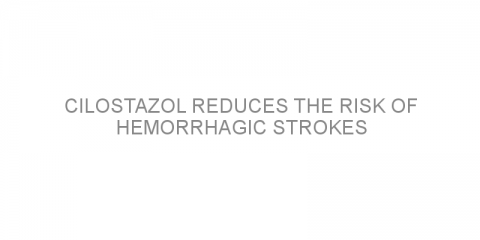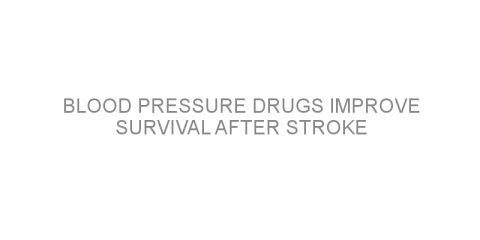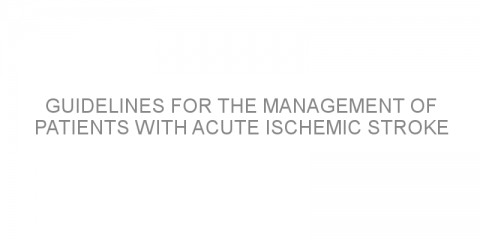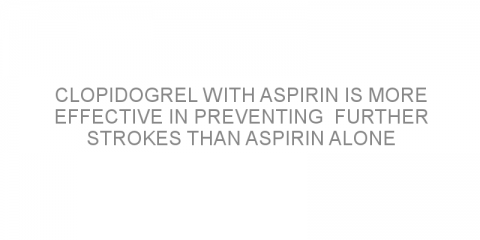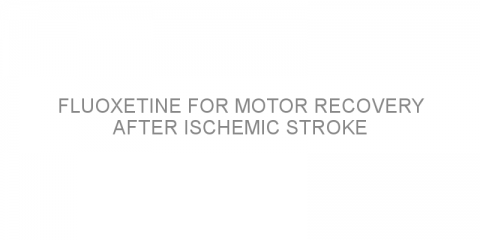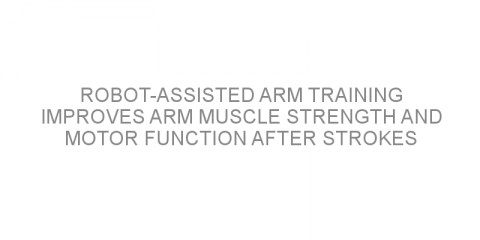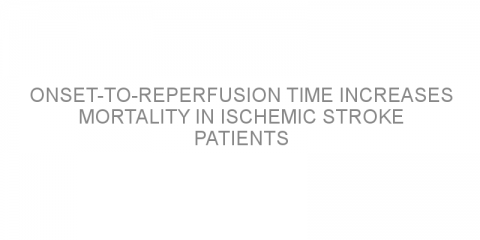In a nutshell This study compared cilostazol (Pletal) with aspirin for the prevention of further strokes (secondary prevention). Some background A stroke occurs when blood flow is interrupted to part of the brain. Without blood to supply oxygen, brain cells quickly begin to die. Depending on the region of the brain affected, a stroke may cause...
Read MoreStroke Posts on Medivizor
Blood pressure drugs improve survival after stroke
In a nutshell Researchers examined whether persistence with blood pressure medication after a stroke is associated with better ourcomes. Some background A stroke is caused by an interruption of blood to the brain. Ischemic stroke (IS) is the most common type of stroke and happens when an artery to the brain is blocked. Many people who have an IS...
Read MoreGuidelines for the management of patients with acute ischemic stroke
In a nutshell This guideline article was authored by The Stroke Council of the AHA/ASA (the American Stroke Association and the American Heart Association). It provides an overview of the recommended management of patients with ischemic stroke according to the latest published medical data. Some background An ischemic stroke occurs when...
Read MoreClopidogrel with aspirin is more effective in preventing further strokes than aspirin alone
In a nutshell This study examined whether combining two antiplatelet drugs – clopidogrel (plavix) and aspirin (cartia) – better protects patients with prior minor ischemic stroke or transient ischemic attack (TIA) from further strokes, in comparison to standard treatment...
Read MoreNeurological complications of acute ischaemic stroke
In a nutshell This paper reviews the most frequent neurological complications that occur early after a stroke (acute complications) and their management. Some background Ischemic stroke is a leading cause of death. Acute neurological complications (occurring early after stroke) are responsible for much of this increased mortality. Recognizing...
Read MoreImproved survival in patients treated with statins before and during hospitalization for stroke
In a nutshell This study examined the relationship between stroke survival and the use of statins before and during hospitalization for stroke. Some background Statins are a class of drugs widely prescribed to reduce the risk of cardiovascular events (such as heart attacks and strokes). These drugs work by lowering the levels of LDL cholesterol...
Read MoreVery early mobilization after stroke fast tracks return to walking
In a nutshell This trial examined whether earlier and more intensive physical activity after a stroke could reduce the recovery time necessary to achieve walking independence. Some background Approximately two thirds of patients are unable to walk without assistance in the initial weeks following a stroke. Physical therapy and activity are an...
Read MoreFluoxetine for motor recovery after ischemic stroke
In a nutshell This trial examined the benefits of fluoxetine (Prozac or Fontex) in the motor recovery of patients who suffered a stroke. Some background More than half of stroke survivors continue to experience some degree of motor deficit (loss of muscle strength or function due to nerve damage) after a stroke. Hemiplegia (paralysis of the...
Read MoreSelective serotonin reuptake inhibitors for stroke recovery
In a nutshell This meta-analysis (an analysis of data combined from several similar trials) examined the benefit of selective serotonin reuptake inhibitors (SSRI's) in the rehabilitation of patients who suffered a stroke. Some background More than half of stroke survivors continue to experience motor deficits (loss of muscle strength or...
Read MorePhysical therapy at home is as effective as body-weight support locomotor training
In a nutshell This trial examined the benefit of locomotor training with body-weight support in the recovery of walking ability after a stroke. The optimal time to begin locomotor training after the stroke was also examined. Some background Many stroke survivors suffer from limitations in walking that restrict their mobility within the community,...
Read MoreRobot-assisted arm training improves arm muscle strength and motor function after strokes
In a nutshell This meta-analysis (an analysis of data combined from several similar trials) examined whether robot-assisted arm training could accelerate motor recovery as part of rehabilitation after stroke. Some background More than half of stroke survivors continue to experience reduced arm function due to nerve damage. This can restrict...
Read MoreOnset-to-reperfusion time increases mortality in ischemic stroke patients
In a nutshell This meta-analysis (an analysis of data combined from several similar studies) examined how onset-to-reperfusion time (ORT) affects mortality. Some background The cause of ischemic strokes is a blockage of an artery supplying blood to the brain. The major goal of ischemic stroke treatment is reperfusion (opening the occlusion and...
Read More
